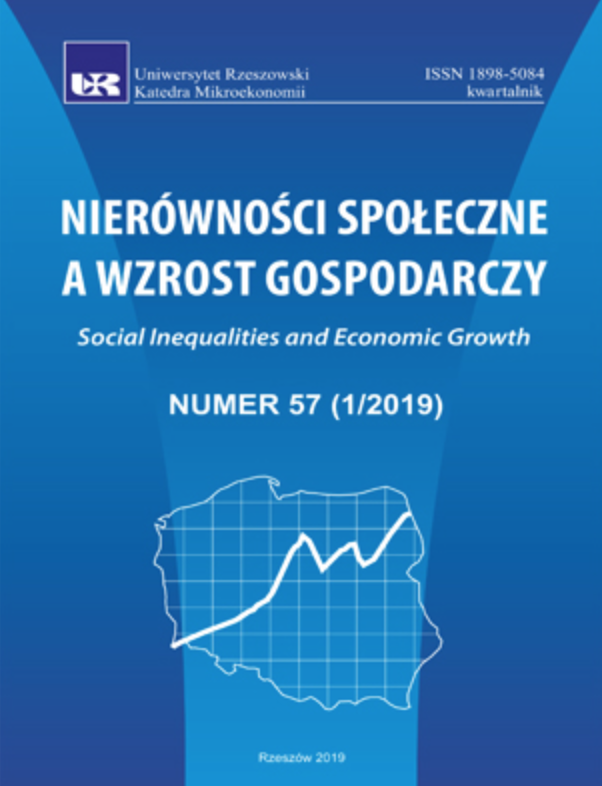Economic views of the Cracow school
DOI:
https://doi.org/10.15584/nsawg.2019.1.17Keywords:
Cracow school, etatism, monetary policy, tax policy, interwar periodAbstract
The term Cracow school relates to economists who were associated with the economic environment of Krakow. Prof. Adam Krzyżanowski from the Jagiellonian University chaired them. In 1921, they founded the Economic Society, which was supposed to promote economic knowledge in a society and fight against excessive state interference in economic life. The views of the Cracow school shaped public opinion to a large extent, and its representatives enjoyed great authority in a society. The article attempts to synthetically present the attitude of Kraków’s economists to the most important issues: etatism, monetary and tax policy. Attention was drawn to their evaluation from the point of view of the assumptions of economic liberalism. The review of publications by Cracow economists clearly indicates a conservative, neoclassical approach to economic issues. According to the liberal spirit, representatives of the Cracow school criticized the harmfulness of allegedly too far-reaching etatism, too high taxes, which, however, did not result in an increase of fiscal income and monetary policy of the government, leading to inflation and then to mark’s hyperinflation. They also disagreed with the politics of Władysław Grabski. They believed that first it was necessary to balance the budget, and then to take a stabilization loan to strengthen the zloty. They criticized deflation policy in the years of the great economic crisis, although initially they accepted it. Using the method of a source analysis supplemented by the description and comparison method, the original texts of Cracow economists were used.Downloads
Download data is not yet available.
Downloads
Published
2020-11-13
How to Cite
Zagóra-Jonszta, U. (2020). Economic views of the Cracow school. Social Inequalities and Economic Growth, 1(57), 259–269. https://doi.org/10.15584/nsawg.2019.1.17
Issue
Section
Articles
License
Copyright (c) 2019 University of Rzeszow

This work is licensed under a Creative Commons Attribution-ShareAlike 4.0 International License.


